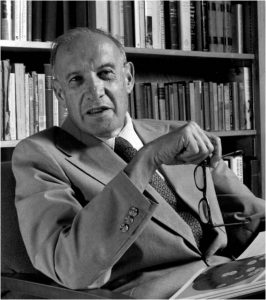The work of a genius or giant often presents an anomaly. Reverential regard obscures the real work. People know the name, but haven’t engaged with the work. In this series, we take one Peter Drucker quote or excerpt and seek to understand it.
Entry 4
“Knowledge does not eliminate skill. On the contrary, knowledge is fast becoming the foundation of skill”

Courtesy-http://lollipopshomeworks.blogspot.in/
Knowledge and Skill get melded together in real life. Yet, when people reflect on both of them, they often make the error of looking at them in isolation. Focussing on one without considering the other often proves to be the undoing.
Knowledge is ‘how things work’
The best management education provides knowledge, but if the skills of managing are not being practiced at the same time, this education is largely theoretical. Knowledge imparted without considering how it is going to be used ( skill) is like being given a manual without the real object.
Management education is also received knowledge, handed down to us over the years. Real knowledge is created in the process of attempting something first-hand or at least observing it first-hand. This knowledge is created from the ground up starting with data.
The data revolution underway is a positive context for understanding how knowledge is created. There is an ocean of data out there. The challenge organisations world over face is how to convert data into information and then knowledge. As said before, knowledge reveals how things work. Only when organisations know how things work or have a theory about it will they be able to apply it in the form of a skill.
Google is doing exactly that with say, Google Maps. Google analyses the enormous data churned out daily by users of Google maps to understand traffic patterns. This knowledge is used by Google to suggest what is the fastest route to the destination. Drivers rely on Google Maps and get skilled at navigating the route based on real-time knowledge. Consider also how this knowledge enables a whole ecosystem of businesses including that of food-delivery and of course car-rides. The skills just multiply be it of pin-point delivery of food or the pick-up and drop of passengers.
In a way, Drucker foresaw the implications of data being the new oil by saying that Knowledge is becoming the foundation of skill. But, he did not use the word – data or information. He used the word – knowledge. That is a critical distinction to grasp. Data by itself is meaningless. It has to be imbued by meaning and meaning-making is a human endowment. In other words, the crucial task of understanding what the data means and ‘how things work’ remains. A retweet does not mean the person agrees and a facebook like may mean nothing but a robotic nod.
What smart organisations do is interpret data, form their own understanding of ‘how things work’ and put that knowledge to test. That’s what Amazon does to readers who are considering buying or have bought a book. It instantly shows what books similar-minded readers have bought. These books belong to the same genre or theme as the current book they are considering. Amazon has successfully used the knowledge of buying patterns to influence and sell to you. Influencing and selling are skills. This example shows how knowledge is an interpretation rather than a straightforward fact to be seen and discovered. Thats where the charm and frustration lies!
Fans of the Game of Thrones could also relate to this knowledge – skill continuum. The living live in the mortal fear of Whitewalkers and only a series of incidents make them piece together the knowledge that Whitewalkers can be killed by only two things – Dragonglass or Valyrian Steel. This knowledge is used to make dragon-glass weapons in the final war and brandish whatever Valyrian steel blades they have. But, this is only part of the equation. The other part is the skill required in coming close to the Whitewalkers and using the lethal weapons. Only one person has practiced that skill and those who have seen the most recent episodes know who that is!
Learning from Drucker’s wisdom requires us to identify the knowledge component and skill component and piece them together for the art of action and performance. Mindfulness – Knowledge and Skill. What do I know? What do I do with what I know? Both questions need to be answered. Automation – Knowledge and Skill. Same two questions. Interpretation is the key. If you can juggle with multiple perspectives, you can interpret in multiple ways and make multiple meanings! When Anand Mahindra says Uberisation is a threat to the car industry, he is likely using that knowledge as the foundation of a different skilling for his organisation.
Questions to ask – What are my core skills? What new knowledge is becoming the foundation of my core skills? What can I do about it?